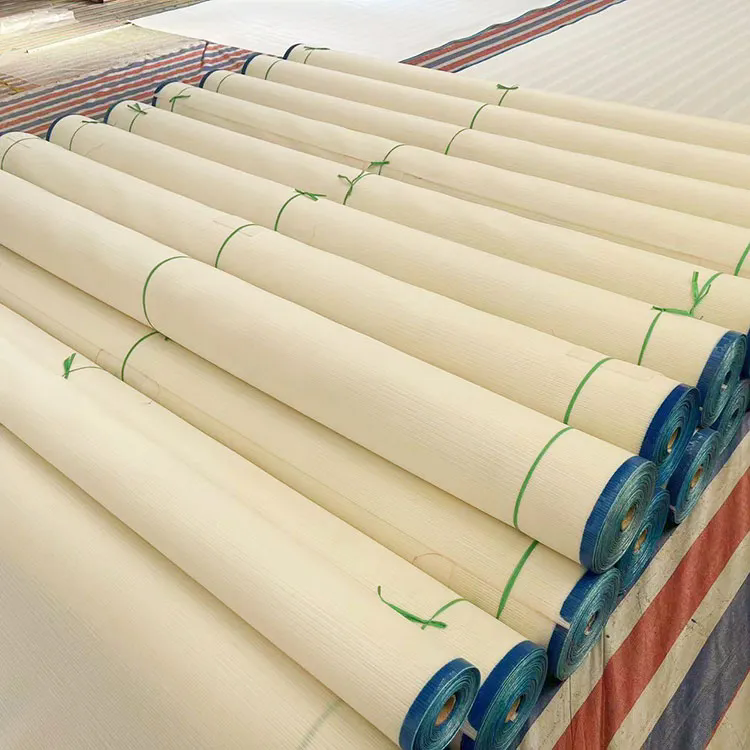Vacuum Filter Belts: Enhancing Efficiency in Filtration Processes
2024-09-04
In industrial filtration systems, the efficiency and effectiveness of the filtration process are crucial for maintaining product quality and operational efficiency. One key component that plays a vital role in these processes is the vacuum filter belt. This specialized equipment is used in various industries to separate solids from liquids, ensuring clean and clear filtrate. In this blog, we’ll explore what vacuum filter belts are, their key features, benefits, and applications in different industrial settings.
What is a Vacuum Filter Belt?
A vacuum filter belt is a type of continuous filter used in vacuum filtration systems to separate solid particles from liquids. It consists of a permeable belt that moves through a series of filter stations where the filtration process occurs. The vacuum filter belt operates under the principle of applying a vacuum to one side of the belt, which pulls the liquid through the filter medium while retaining the solid particles on the belt.
Key Features of Vacuum Filter Belts
1. Durable Material
Vacuum filter belts are typically made from durable, high-strength materials such as polyester, nylon, or polypropylene. These materials are chosen for their resistance to abrasion, chemicals, and high temperatures, ensuring a long service life even in demanding conditions.
2. Permeable Structure
The belt is designed with a permeable structure that allows liquids to pass through while retaining solids. The permeability of the belt can be adjusted based on the specific requirements of the filtration process.
3. Continuous Operation
Vacuum filter belts are designed for continuous operation, allowing for a steady and uninterrupted filtration process. The continuous movement of the belt ensures efficient and consistent performance.
4. Adjustable Tension
The tension of the vacuum filter belt can be adjusted to accommodate different filtration needs. Proper tensioning is crucial for maintaining optimal filtration performance and preventing belt slippage.
5. Easy Maintenance
Vacuum filter belts are designed for ease of maintenance. They can be cleaned and replaced with minimal effort, ensuring that the filtration system remains in optimal working condition.
Benefits of Vacuum Filter Belts
1. Enhanced Filtration Efficiency
Vacuum filter belts provide efficient separation of solids from liquids, resulting in high-quality filtrate. The vacuum application enhances the filtration process by increasing the flow rate and reducing the residual moisture in the solid cake.
2. Continuous and Automated Operation
The continuous operation of vacuum filter belts allows for automated and uninterrupted filtration. This automation reduces the need for manual intervention and increases overall productivity.
3. Cost-Effective Solution
Vacuum filter belts offer a cost-effective filtration solution by minimizing downtime and reducing the need for frequent replacements. The durable construction and long service life of the belts contribute to lower operational costs.
4. Versatility in Applications
Vacuum filter belts are versatile and can be used in various industries for different filtration applications. Their ability to handle a wide range of materials makes them suitable for diverse processes.
5. Improved Product Quality
By providing efficient solid-liquid separation, vacuum filter belts help improve the quality of the final product. The clean and clear filtrate ensures that the end product meets quality standards and regulatory requirements.
Applications of Vacuum Filter Belts
1. Chemical Processing
In the chemical industry, vacuum filter belts are used to separate chemical slurries and suspensions. They are essential for producing high-purity chemicals and ensuring consistent product quality.
2. Pharmaceutical Manufacturing
Pharmaceutical manufacturers use vacuum filter belts to filter active ingredients and excipients. The high efficiency and precision of the filtration process are critical for producing safe and effective pharmaceutical products.
3. Mineral Processing
In mineral processing, vacuum filter belts are employed to dewater mineral concentrates and tailings. The efficient separation of solids from liquids helps improve the recovery of valuable minerals and reduces waste.
4. Food and Beverage Industry
The food and beverage industry utilizes vacuum filter belts for filtering juices, syrups, and other liquid products. The filtration process helps ensure the clarity and purity of food and beverage products.
5. Pulp and Paper Industry
In the pulp and paper industry, vacuum filter belts are used to separate fibers from pulping solutions. The efficient filtration process aids in producing high-quality paper products and reducing processing costs.
Conclusion
Vacuum filter belts are indispensable components in industrial filtration systems, offering enhanced efficiency and reliability in separating solids from liquids. Their durable construction, continuous operation, and versatility make them a valuable asset in various industries, including chemical processing, pharmaceutical manufacturing, mineral processing, food and beverage production, and pulp and paper processing. By incorporating vacuum filter belts into your filtration systems, you can achieve improved product quality, cost-effective operations, and consistent performance. Embrace the benefits of vacuum filter belts and optimize your filtration processes for greater efficiency and productivity.



